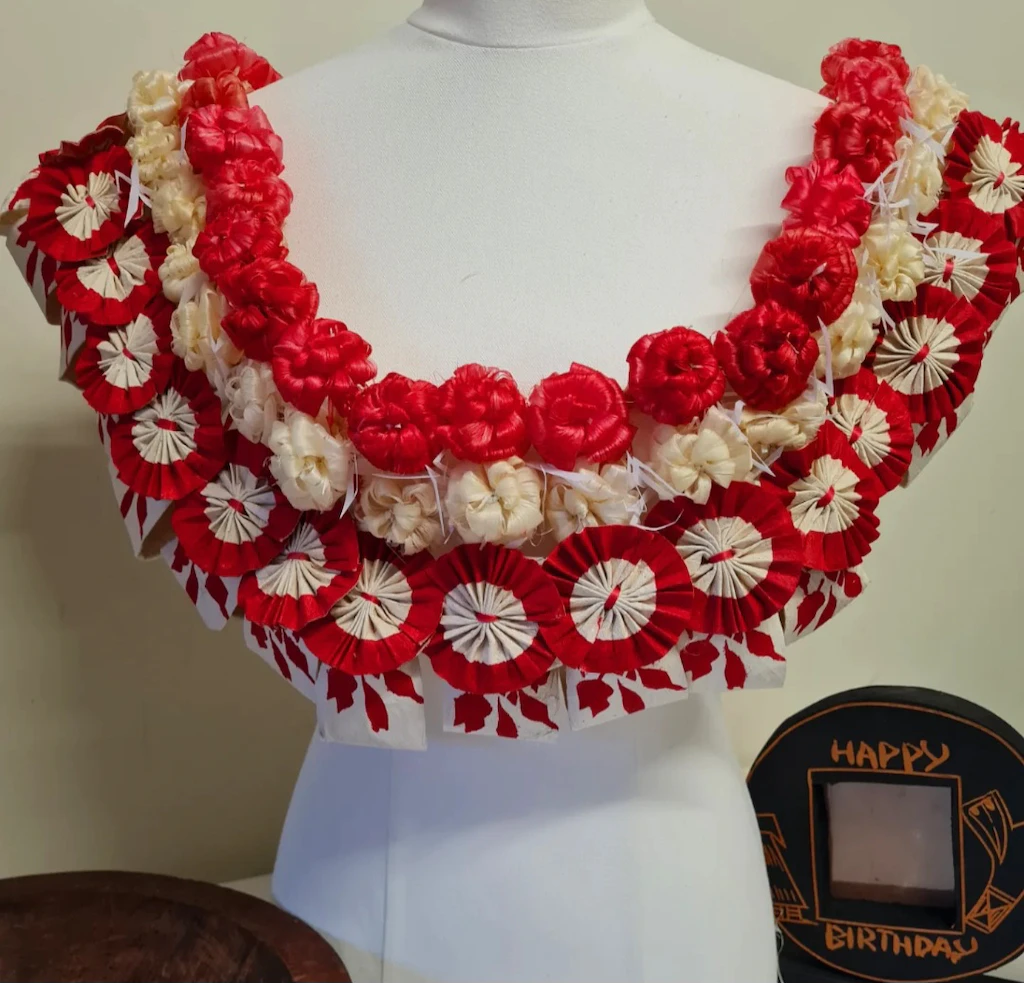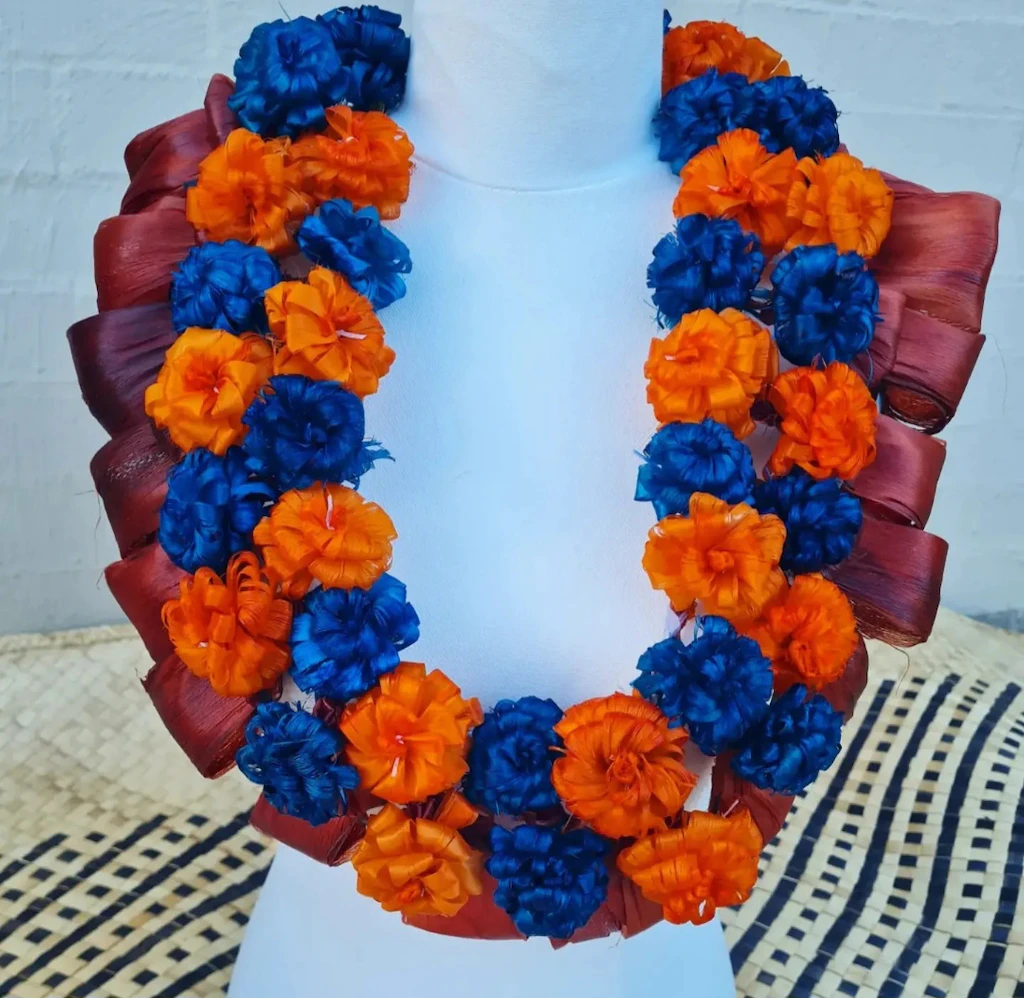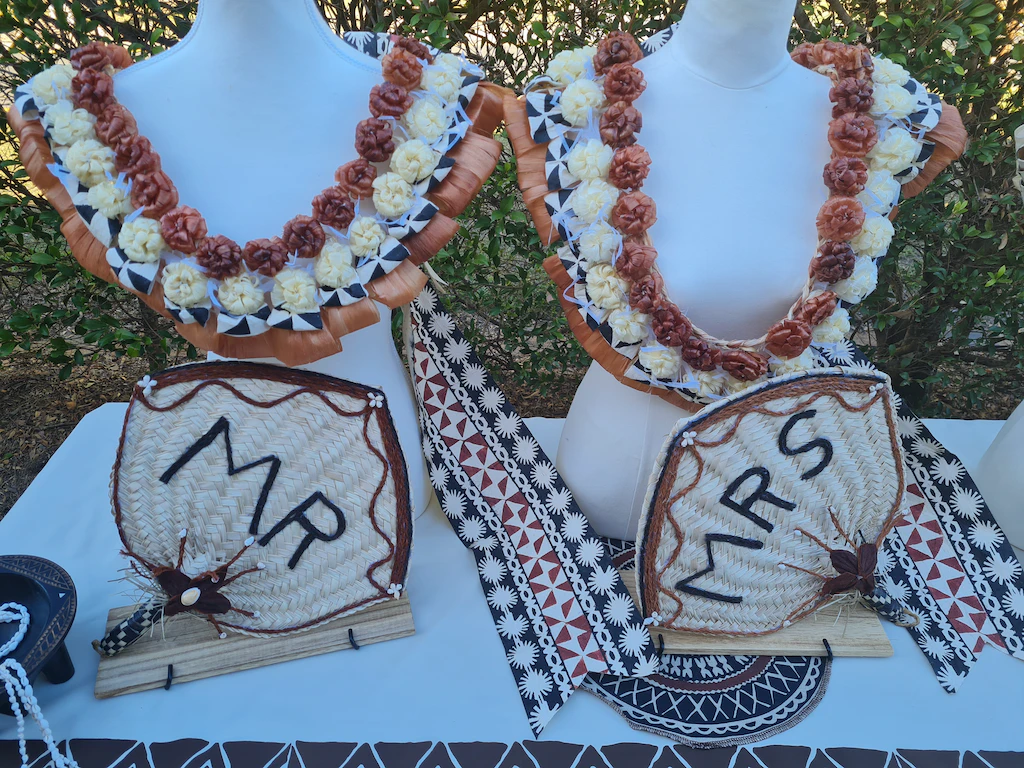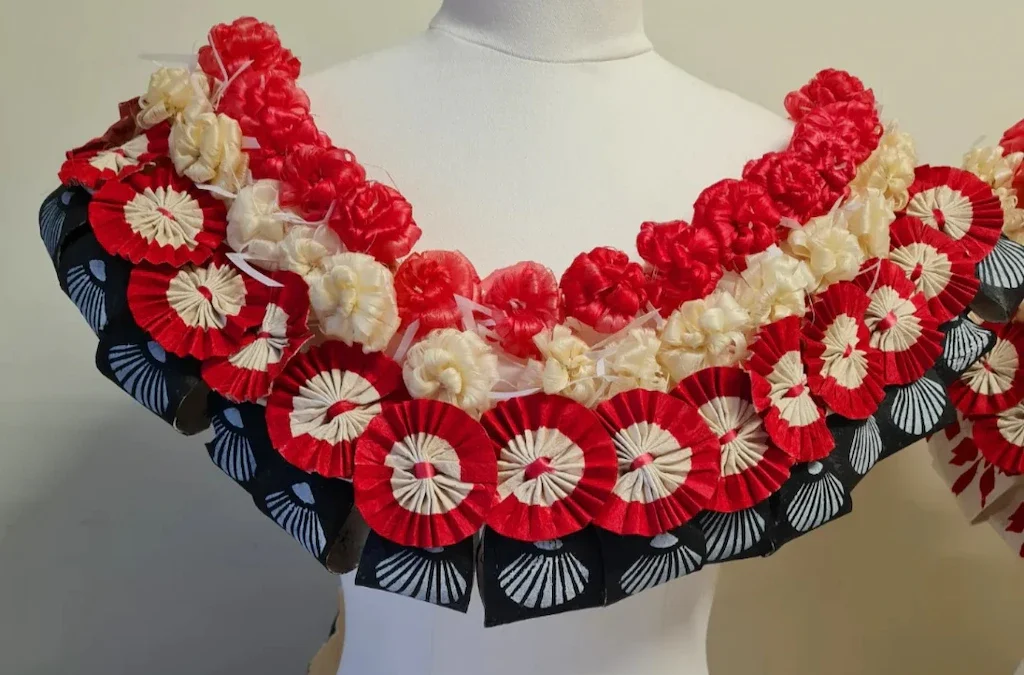The Salusalu, a traditional Fijian garland, holds a significant place in Fijian culture. These intricately crafted garlands are typically made by women and are given to honor guests at special events or to mark important life milestones such as weddings and graduations. The creation of a Salusalu involves plaiting various plant materials, such as hibiscus fiber, and often includes the addition of fresh flowers, which contribute to its beautiful appearance and fragrance.
Crafting the Salusalu
The process of making a Salusalu is deeply rooted in tradition. The base is usually made from the vau plant, a local species, to which flowers and other decorative elements are added. The garlands from Vanua Levu, for instance, are known for using kuta (Eleocharis dulcis) without flowers. In some regions, a strip of Fijian barkcloth, or masi, is added to signify a person’s chiefly rank. Modern Salusalu often incorporate imported textiles and dyed rosettes due to limited access to traditional materials, reflecting the influence of globalization and urbanization.
Cultural Significance in the Pacific
Beyond Fiji, the Salusalu holds cultural importance in various Pacific Island communities like Tonga and Samoa. In these cultures, Salusalu are not only decorative but also serve as symbols of respect, love, and celebration. They are used in ceremonies and social gatherings to honor individuals and celebrate achievements, reinforcing social bonds and cultural identity.



Siuhuu: Supporting Artisans
Siuhuu, a platform dedicated to supporting and promoting traditional handicrafts, plays a crucial role in helping Fijian artisans sell their Salusalu. By offering a marketplace for these beautiful garlands, Siuhuu provides artisans with an opportunity to earn a living from their crafts. This platform ensures that sellers can reach a broader audience while maintaining the authenticity and cultural significance of their products. Sellers like Vuvale Treasures, who makes a living by selling Salusalu on Siuhuu.
Safe and Secure Selling Environment
Siuhuu is committed to creating a safe and secure space for artisans to sell their Salusalu. The platform implements stringent security measures to protect both sellers and buyers, ensuring that transactions are conducted smoothly and safely. By fostering a trustworthy environment, Siuhuu helps preserve the traditional craft of Salusalu making, allowing it to thrive in a modern marketplace.
Conclusion
The Fijian Salusalu is a symbol of cultural heritage, respect, and honor. Through Siuhuu, artisans can continue to practice and share this beautiful tradition, ensuring that the Salusalu remains a vibrant part of Fijian and Pacific Island culture. By supporting these artisans, Siuhuu not only helps preserve a rich cultural legacy but also provides economic opportunities for the craftsmen and women who create these exquisite Salusalu.

Related posts
Meet the Founder

Akanesi Kaufusi, also known as Akanesi Tohotoa, a Tongan native, embodies resilience and vision, having transformed her personal challenges into a pioneering business venture. Akanesi moved from Tonga to New Zealand to further her studies, where she earned degrees in Business and Theology. During this period, she faced difficulties locating Pacific Island-owned businesses in her vicinity. This struggle planted the seed for what would become her groundbreaking initiative.
Learn more

